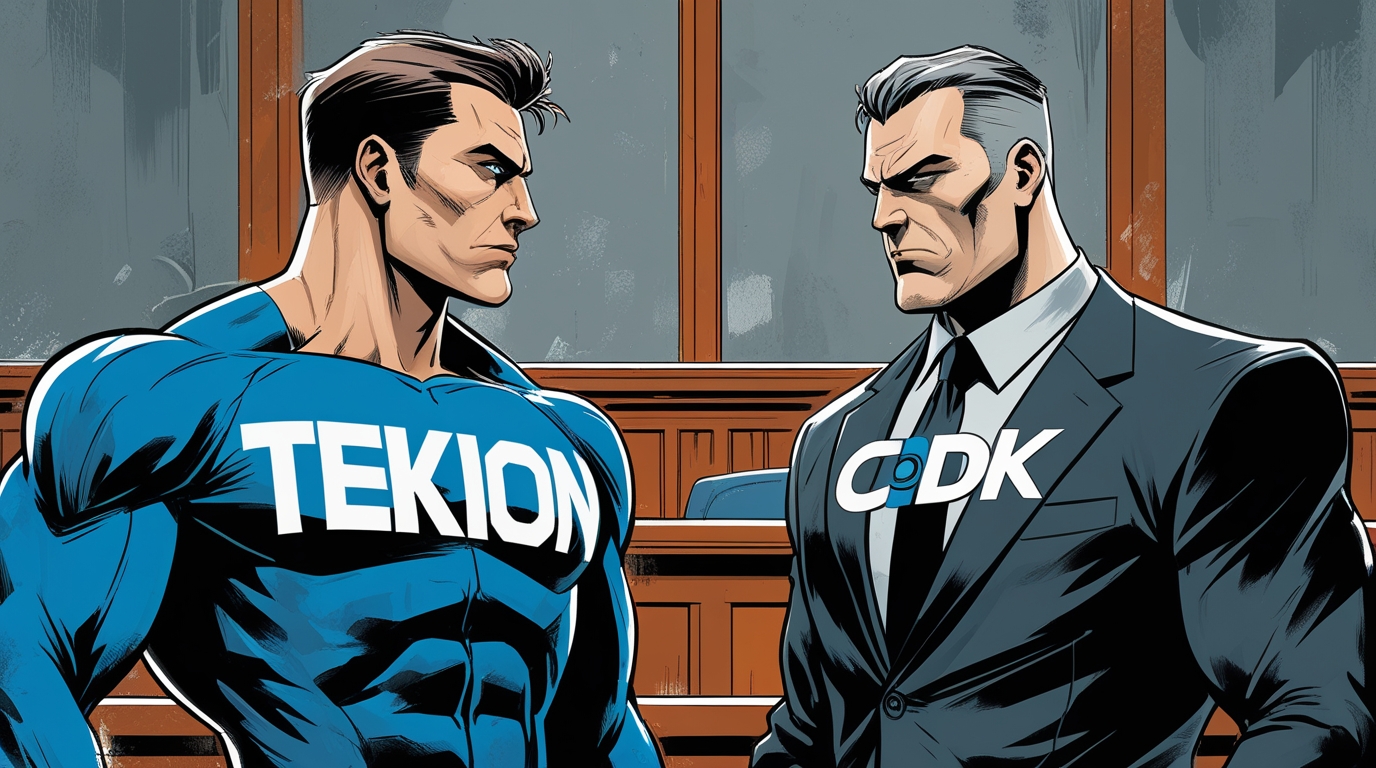Tekion Files Anti-Trust Lawsuit Against CDK Global: A Battle Over Automotive Retail Tech
In a high-stakes legal confrontation, Tekion Corp., a fast-rising innovator in automotive retail technology, has filed an antitrust lawsuit against CDK Global, a leading provider of dealership management systems (DMS). This lawsuit, filed in a U.S. federal court, underscores the intensifying competition and conflict in the digital transformation of the automotive industry.
The Allegations
Tekion’s lawsuit accuses CDK Global of engaging in anti-competitive practices aimed at stifling innovation and maintaining its dominant market position. According to Tekion, CDK has implemented restrictive data-sharing policies and leveraged its market power to hinder Tekion’s ability to integrate with CDK’s DMS platforms. Such actions, Tekion claims, create artificial barriers for dealerships seeking to adopt Tekion’s next-generation technology.
The lawsuit alleges that CDK charges exorbitant fees for data integration while selectively denying access to competitors. Tekion argues that this conduct not only impedes its growth but also harms dealerships and consumers by limiting choice and slowing the adoption of innovative solutions.
Industry Context
The automotive retail industry is undergoing a seismic shift, with dealerships increasingly relying on advanced digital tools to streamline operations and enhance customer experiences. Tekion, founded by former Tesla CIO Jay Vijayan, has positioned itself as a disruptor, offering a cloud-native platform that integrates sales, service, and operations into a seamless, data-driven ecosystem.
In contrast, CDK Global, along with Reynolds and Reynolds, has long dominated the dealership management system market. Critics have often accused these legacy players of monopolistic behavior, citing high costs and limited interoperability with third-party solutions. Tekion’s lawsuit adds a new dimension to these ongoing concerns, potentially drawing regulatory scrutiny to the broader industry practices.
Tekion’s Case
Tekion’s legal filing highlights several key points:
- Restrictive Contracts: CDK allegedly imposes exclusivity clauses and restrictive terms on dealerships, preventing them from freely adopting competing technologies.
- Anti-Competitive Fees: The lawsuit claims that CDK’s integration fees are not only exorbitant but also designed to disadvantage smaller competitors.
- Data Access Barriers: Tekion asserts that CDK’s policies deliberately block or limit data access, undermining the operational efficiency of dealerships that choose Tekion’s platform.
CDK’s Response
CDK Global has denied the allegations, maintaining that its practices comply with antitrust laws and serve to protect the integrity and security of its systems. In a public statement, CDK emphasized its commitment to fostering innovation and supporting dealership operations, while accusing Tekion of attempting to gain market share through litigation rather than competition.
Implications for the Automotive Tech Sector
This lawsuit could have far-reaching implications for the automotive tech sector. If Tekion succeeds, the case could pave the way for greater competition and regulatory reforms, forcing legacy DMS providers to adopt more open and collaborative practices. For dealerships, this could mean reduced costs, enhanced innovation, and improved customer experiences.
However, the litigation also highlights the broader challenges startups face when competing against entrenched industry giants. The outcome of this case will likely influence not only Tekion’s trajectory but also the strategies of other emerging players in the automotive tech ecosystem.
Conclusion
The Tekion vs. CDK Global lawsuit is more than just a legal dispute; it’s a flashpoint in the evolution of automotive retail technology. As the industry watches closely, the case has the potential to reshape competitive dynamics, spotlight the role of fair market practices, and accelerate the shift toward a more innovative and customer-focused future. Whatever the outcome, this battle underscores the critical importance of fostering an ecosystem that supports both competition and collaboration in the pursuit of technological progress.


